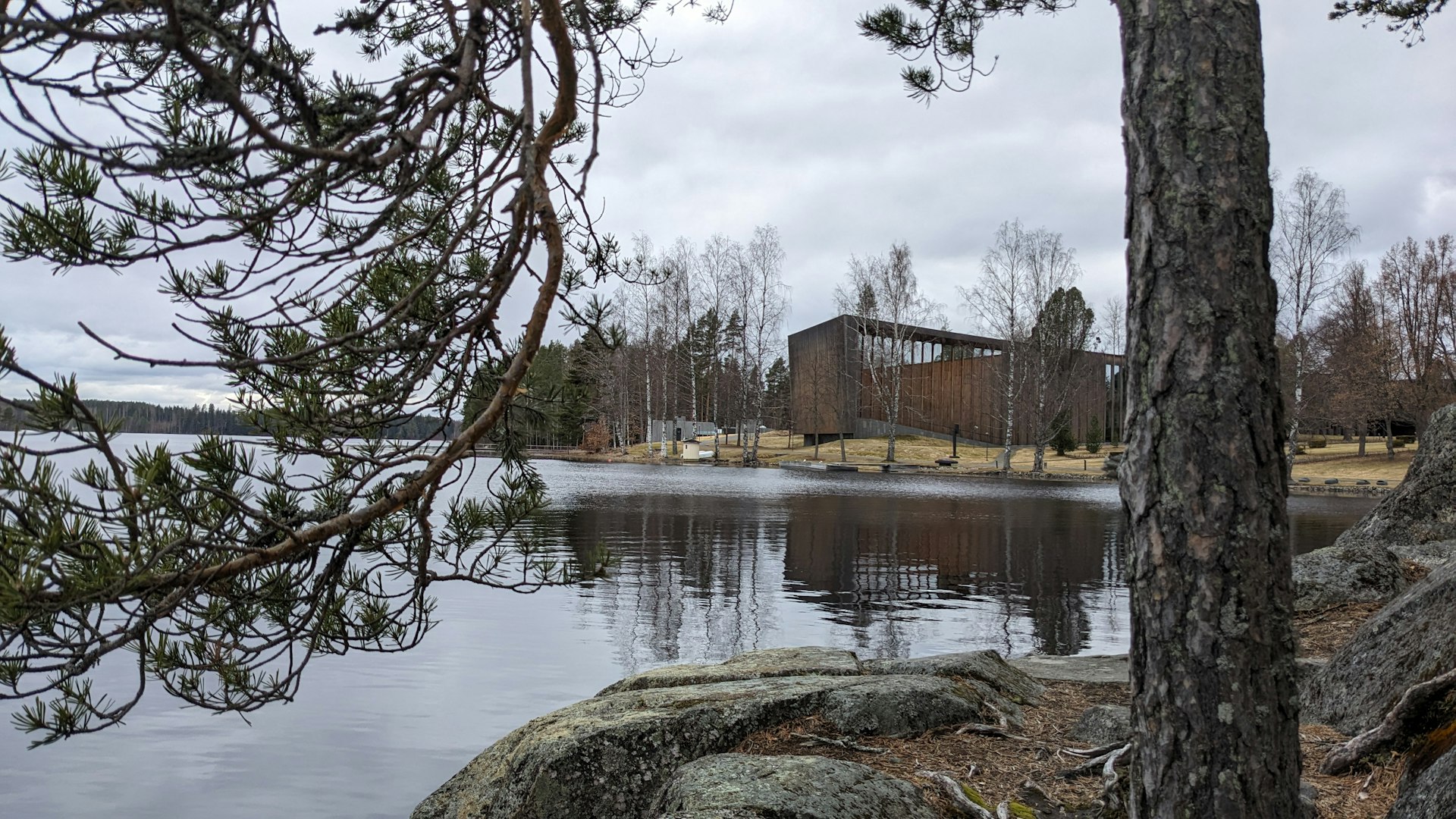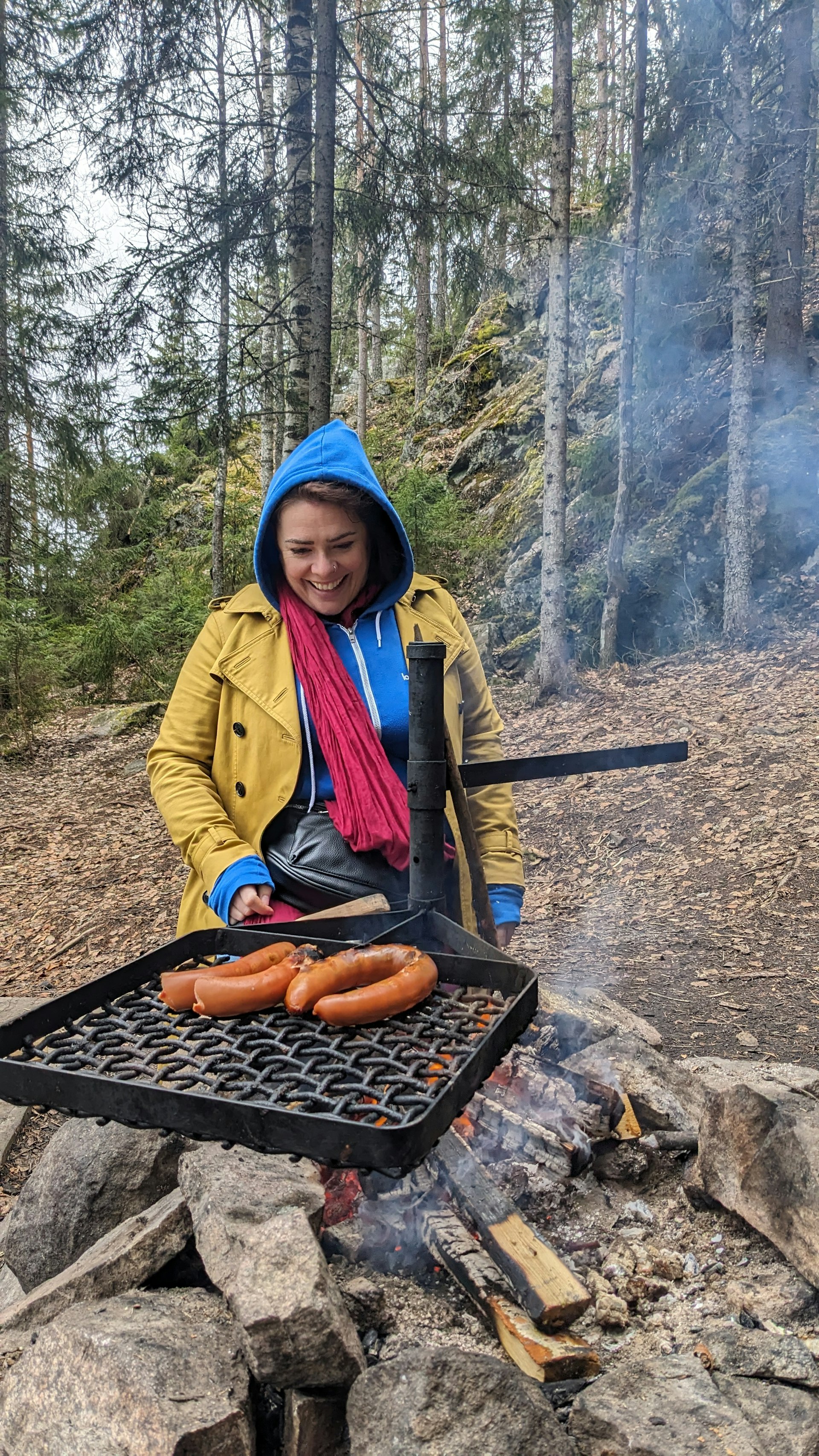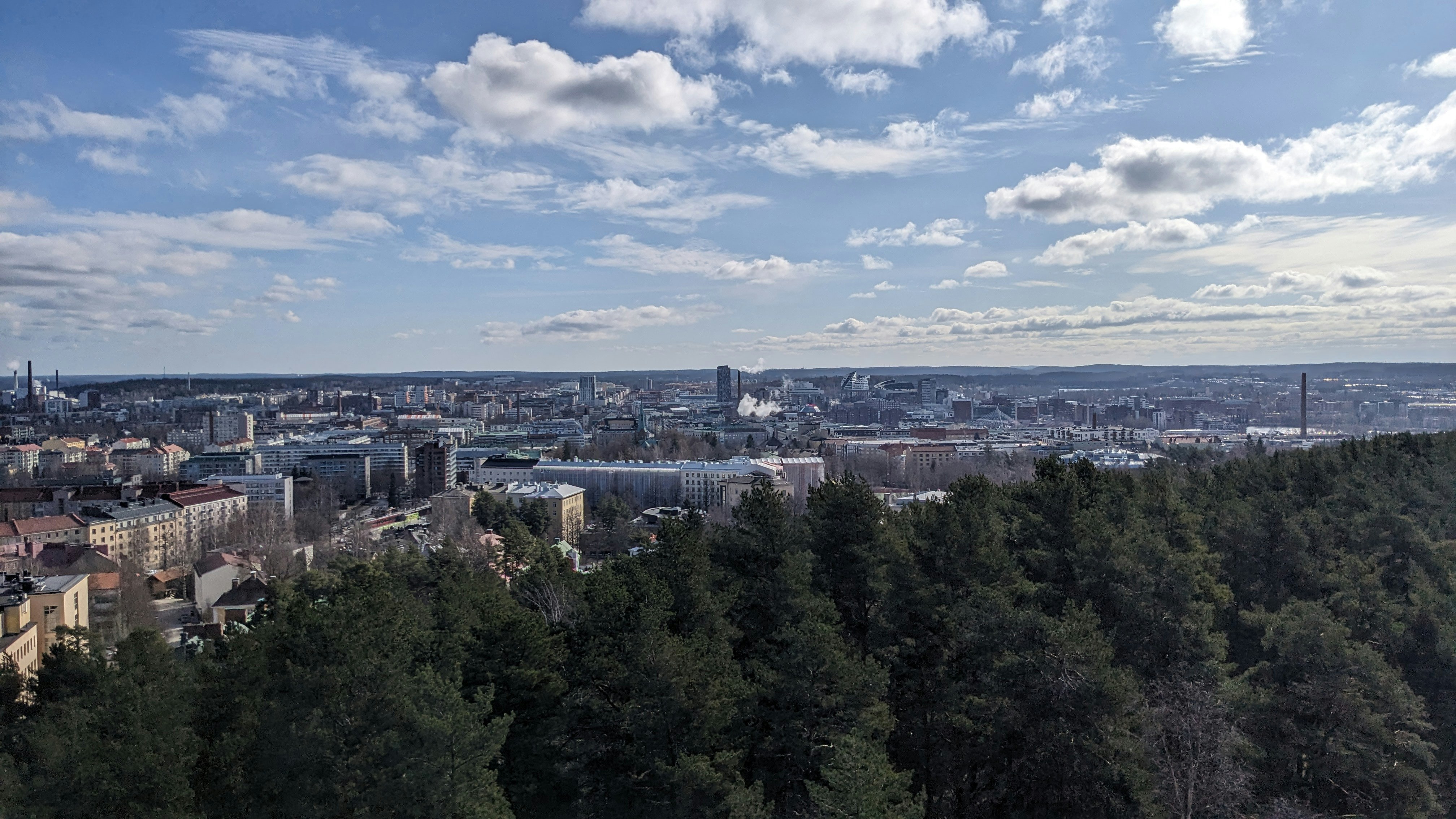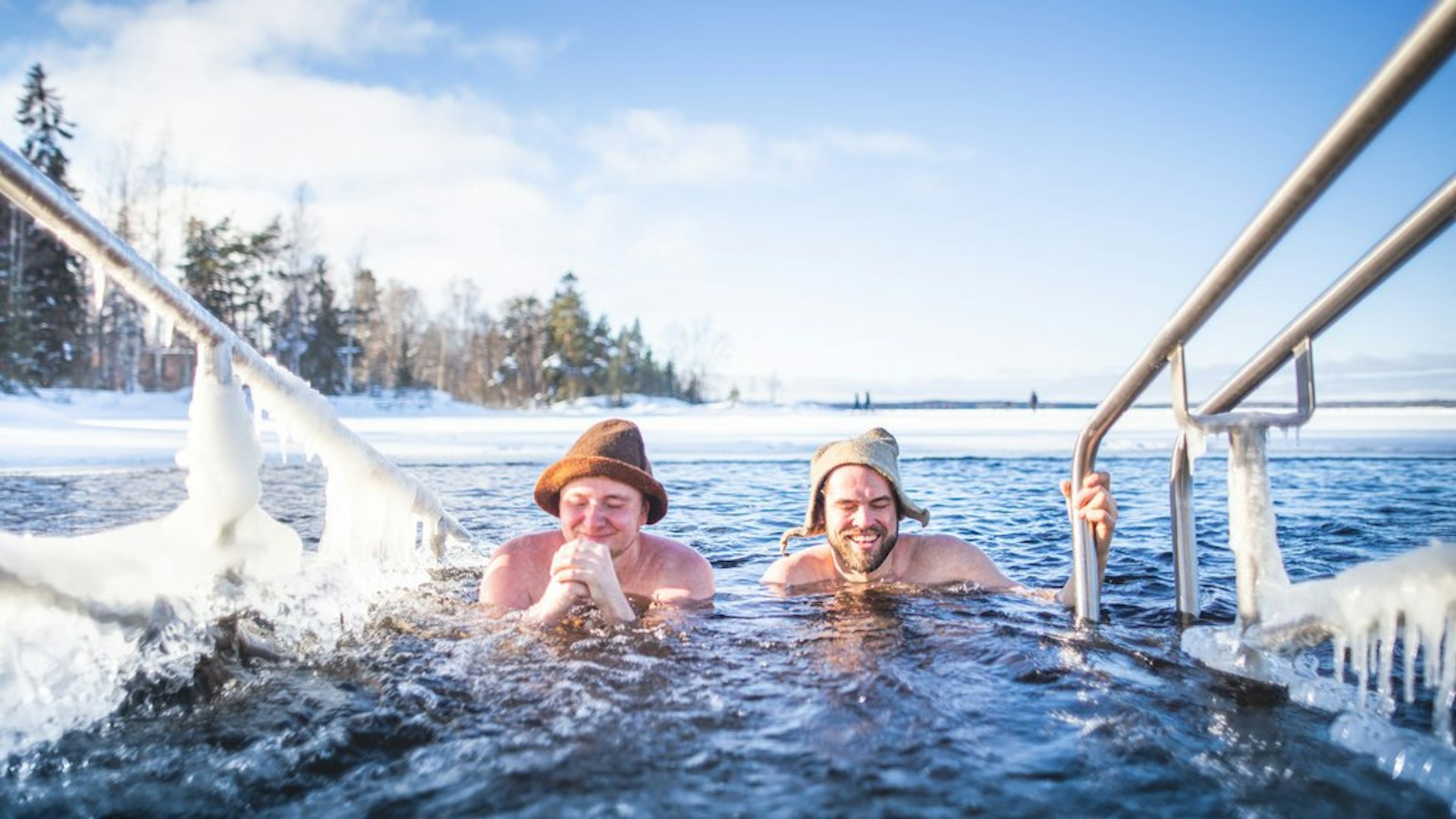Lonely Planet Destination Editor Amy Lynch traveled to Tampere, Finland – the sauna capital of the world – to discover what lies behind the Finnish passion for saunas. Here, she shares some tips and insights for anyone planning a similar trip.
I thought I knew what saunas were all about. Small, electric affairs at the local swimming pool, or little outdoor cabins with a heat barely above room temperature. But nothing I had experienced before had prepared me for the Finnish sauna, a holistic, social, communal ritual of cleansing and relaxation. Tampere calls itself the sauna capital of the world, and with over 60 public saunas it’s easy to see why. From floating saunas to art saunas and rooftop saunas to basic public saunas, Tampere has all kinds to choose from. And besides the saunas, this modern, lively yet relaxed city provides excellent dining, scenic hikes not 30 minutes from the city center, and a wealth of cultural sites.
Why are saunas so popular in Finland?
With over 3 million public and private saunas in Finland, saunas are the social center of Finnish society. Saunas are where the Finnish catch up with friends, celebrate special occasions, relax, or get ready for the day. Work meetings can take place in saunas, some women give birth in saunas, and some request to be washed in the sauna when they die. It is considered a sacred place. The benefits of visiting a sauna are thought to include relaxation, improvement in blood circulation, refreshment, help with sleep, and the prevention of illness.
In the sauna, long-handled ladles are used to scoop water from a bucket and pour it onto the coals to create steam. Important sauna etiquette dictates that the patron closest to the coals is responsible for ladling the water, but only after checking with the others present. The process can also involve a plunge in a cold lake after heating up in the sauna.
What was your favorite activity from the trip?
By far my favourite sauna experience in Tampere was the ceremony I experienced in the Sauna Temple, a sauna yurt in Rauhaniemi Folk Spa. The Sauna Temple is a wood-fired silent sauna (though gentle talking is allowed on Wednesdays). The sauna ceremony is offered by Saunakonkeli (@saunakonkeli on Instagram), who perform an immersive mystical ritual that includes spells, chanting, old folk songs, and whisking the guests’ skin with maple twigs and leaves, all the while ladling water on the hot coals. It is an overwhelming, sensual experience that connects the sauna user with the sacred element of sauna culture – the combination of all four natural elements to create löyly (steam).

What was the most under-the-radar activity you enjoyed in Tampere?
An hour and a half northwest of the center of Tampere you’ll find the town of Mänttä, which is home to the Serlachius Museum of Art. On the shores of Lake Melasjärvi, it comprises well-curated and thoughtful exhibits, founded and populated with the collection of the Serlachius family. With paintings from the Golden Age of Finnish art and some European masters, alongside sculptures, video installations, and temporary exhibitions from more contemporary artists, it’s a treasure trove of beautiful pieces. They’re all housed between the old manor and the stunning architecturally designed new building. A personal favorite was an incredible piece by German painter and sculptor Anselm Kiefer, the large-scale Väinämöinen Ilmarinen. Fade Cut was a temporary exhibit on show during my visit: a moving installation exploring queer identity amidst the masculine culture of American barbershops.
On-site Restaurant Gösta is also a major draw of the complex, with award-winning chef Henry Tikkanen creating delicious dishes from seasonal and locally sourced ingredients. The care taken with the collections is even seen here, down to the thoughtfully chosen dishes and cups. I’m still thinking about the beetroot risotto with mushrooms and crispy kale that I had for lunch on my visit, which was creamy and delicious, followed by an exquisite white chocolate choux and passionfruit sorbet. And there is also, of course, an Art Sauna as part of the complex, designed and built in accordance with the architecture of the main museum building. There are thoughtful art pieces throughout the sauna, such as the tile mosaic on the wall of the outdoor shower.

What was the one thing you did not expect in Tampere?
The possibility to explore the wilderness is never far away in Finland, and this is true of Tampere as of any other region. Just 30 minutes south on the tram you’ll find Hervantajärvi nature trail, through a tangled, dense, snowy (in April) forest along the frozen shore of Makkarajärvi. I took a hike there with Patrick of Adventure Apes, to explore, learn some foraging tips, learn how to make a fire, and enjoy some sausages and coffee cooked over my fire at the Viitastenperä campfire. I wasn’t a natural firestarter, but eventually the flames licked up the kindling, and we enjoyed a hot coffee and sausages. To find somewhere that feels so remote and isolated so close to an urban hub is a real joy, and it was invigorating after a few days of pounding the pavement in Tampere.

What was the most scenic experience of your trip?
Just north of the center of Tampere lies the neighbourhood of Pyynikki, bordered by the nature reserve of Pynnikki Ridge. There are paths and trails all around the area, with benches and flat rocks from which to observe the lake. Locals frequent this area for walks and jogs. The best view, however, comes from the Observation Tower, accessed from the entrance to the ridge. For €2 you can climb to the top of the tower, out onto the balcony, and get a 360-degree view of Tampere and the lakes that surround it. The landscape is a mixture of tall industrial chimneys, modern buildings, green forests and endless lakes. (Rest assured that there is a lift for those who have had enough climbing.) The cafe at the base of the tower is also famed for its doughnuts, which are fresh, soft, and drenched in sugar. Treat yourself to a moment of rest with a doughnut and a coffee after a morning’s hike and climb up the tower.
What Finnish food or drink should I try?
Long Drink (or Lonkero in Finnish) was introduced to me on my first night in Tampere. A Finnish staple of picnics and long summer evenings, Long Drink is a pre-mixed glass or can of gin and lemonade, most commonly grapefruit. Refreshing, crisp and sweet, it didn’t take long before I was trying all the varieties. You’ll find it in blue and white striped cans in most supermarkets, for a couple of euro a can, or in multipacks.
Amy Lynch traveled to Finland at the invitation of Visit Tampere. Lonely Planet staff members do not accept freebies in exchange for positive coverage.
